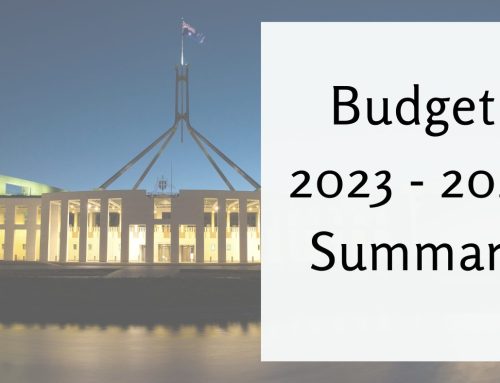Diverted Profits Tax To Be Introduced
A 40% diverted profits tax (DPT) on the profits of multinational corporations that are artificially diverted from Australia will be introduced for income years commencing on or after 1 July 2017.
The DPT, which is part of the government’s Tax Integrity Package, will target companies that shift profits offshore through arrangements involving related parties:

The tax will apply to significant global entities (ie entities which, together with any related entities, have global annual revenue of $1b or more) that are Australian residents or that have a permanent establishment in Australia.
Significant global entities with Australian annual turnover of less than $25m are exempted from the tax, unless income is artificially booked offshore.
The DPT is intended to cover certain situations where the existing integrity rules and the recently-introduced multinational anti-avoidance law are difficult to apply and enforce, particularly where the taxpayer does not cooperate with the Commissioner during the audit process.
Transactions Subject To DPT
For taxpayers satisfying the threshold turnover conditions, an arrangement with a related party may be subject to the DPT if:
- the transaction gives rise to an effective tax mismatch, and
- the transaction has insufficient economic substance.
Effective Tax Mismatch
An effective tax mismatch will arise if a transaction, or a series of transactions, between an Australian taxpayer and a related party result in a reduced Australian tax liability for the Australian taxpayer and an increased overseas tax liability for the related party, such that the amount of the increased liability for the related party is less than 80% of the reduction in Australian tax liability for the Australian taxpayer.
In determining the tax liabilities to be compared, only Australian and foreign income taxes will be taken into account, and other taxes such as goods and services tax will be disregarded. Prior tax losses which may be available to the related party will not be included in the comparison.
Insufficient Economic Substance
An arrangement will be determined to have insufficient economic substance if, based on information available to the Commissioner at the time of the determination, it is reasonable to conclude that the transaction (or series of transactions) was designed to secure the tax mismatch.
An arrangement will be taken to have sufficient economic substance (so that the DPT will not apply) where the non-tax financial benefits of the arrangement exceed the financial benefit of the tax reduction.
Administration
The DPT is not imposed on a self-assessment basis, and liability to the tax will only arise if the Commissioner issues a DPT assessment. The Commissioner will have a broad discretion to not apply the tax where he considered the transaction or arrangement to be low risk.
Where a DPT assessment is issued, liability is imposed at a rate of 40% of the “diverted profits amount”, which is an amount assessed by the Commissioner on the following basis:

An offset will be allowed for any Australian taxes paid on the diverted profits (eg withholding taxes) but will not be reduced by any amount of tax paid in a foreign jurisdiction on the diverted profits. A DPT assessment will also include an interest charge calculated by reference to the period from the date any amount would have been payable on the relevant income tax assessment.
Following the issue of a DPT assessment, a 12-month review period applies during which the Commissioner may consider any further information, including information provided by the taxpayer. If the Commissioner considers the initial assessment to be insufficient he may issue a supplementary assessment up to 30 days before the end of the review period.
Transfer Pricing Rules To Be Strengthened
The strengthening of transfer pricing rules is covered by Actions 8 to 10 of the OECD’s Action Plan on Base Erosion and Profit Shifting.
Action 8 focused on the transfer pricing issues relating to controlled transactions involving intangibles, since intangibles are by definition mobile and often hard to value. Under Action 9, contractual allocations of risk are respected only when they are supported by actual decisions, thus exercising control over these risks. Action 10 focused on other high-risk areas, including the scope for addressing profit allocations resulting from controlled transactions which are not commercially rational. The OECD’s report contains revised guidance which responds to these issues and ensures that transfer pricing rules secure outcomes that better align operational profits with the economic activities which generate them.
Australia’s current transfer pricing legislation specifies that it is to be interpreted so as best to achieve consistency with the OECD’s Transfer Pricing Guidelines. On 5 October 2015, the OECD released the report “Aligning Transfer Pricing Outcomes with Value Creation” to update the guidelines. The changes to the guidelines include:
- enhanced guidance on intellectual property and other intangibles, and
- changes to ensure that transfer pricing analysis reflects the economic substance of the transaction.
As part of the government’s Tax Integrity Package, the transfer pricing rules in Div 815 of the Income Tax Assessment Act 1997 will be amended to incorporate the changes to the OECD’s guidelines, with effect from 1 July 2016.
If You Would Like Further Information Regarding Multi National Tax Please Contact The Office 03 9629 1433





